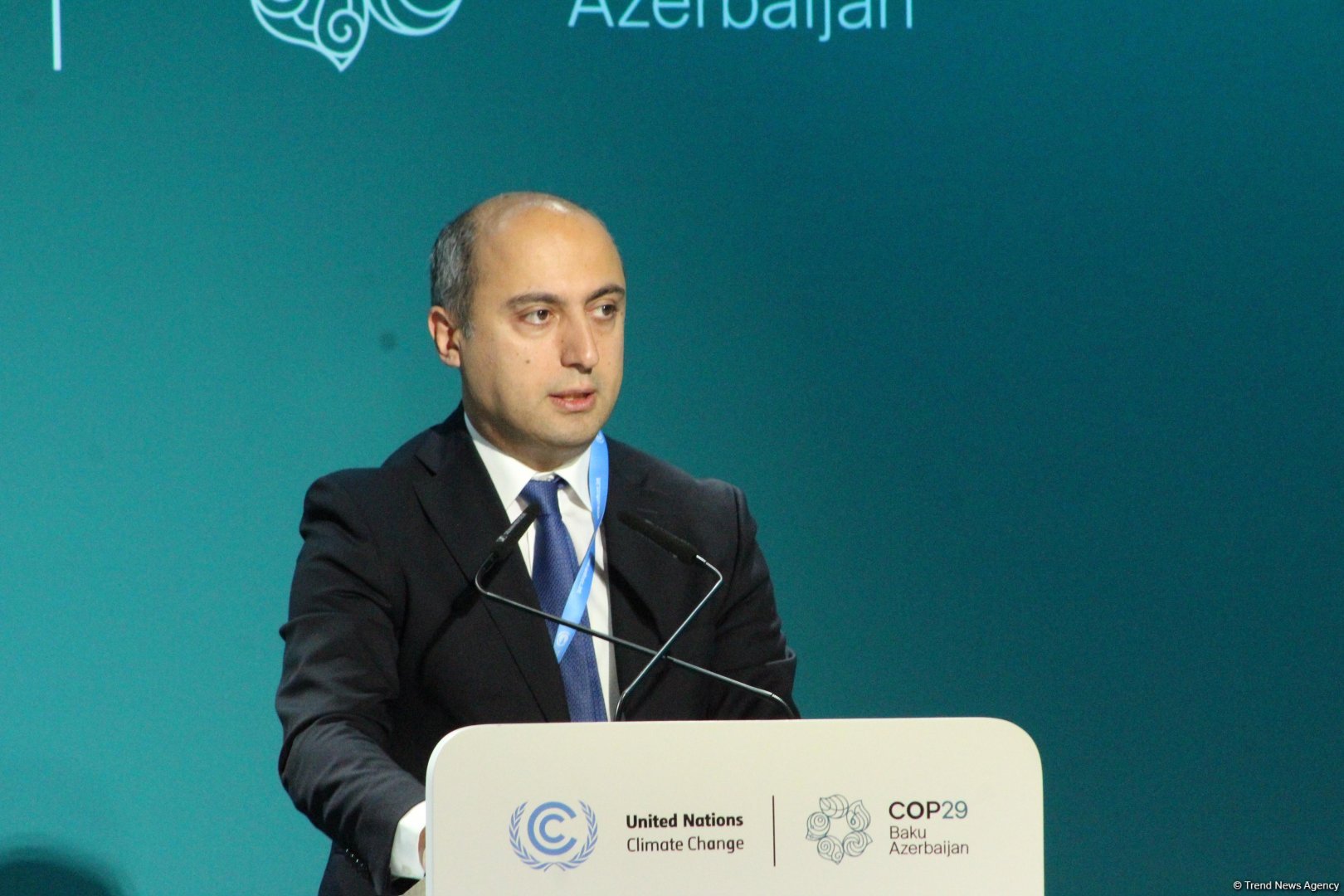BAKU, Azerbaijan, November 18. There is still much to be done to develop climate change knowledge among teachers, said Emin Amrullayev, Azerbaijan's Minister of Science and Education, at the COP29 High-level Meeting on Investing in Human Development for a Climate Resilient Future in Baku today, Trend reports.
The minister emphasized that integrating climate education into national curricula is essential for ensuring that every student understands their role in preserving the planet.
"Azerbaijan’s Social and Economic Development Strategy for 2022-2026 places great emphasis on building sustainable, low-carbon education systems," he stated.
The COP29 Presidency, in collaboration with UNESCO and global partners, is prioritizing the integration of climate metrics into international assessments like PISA while working to transform education systems into more sustainable, eco-friendly models. This includes updating curricula, enhancing teacher training, and establishing schools that champion sustainability and long-term resilience.
Higher education plays a critical role in this transition. By aligning our universities with global sustainability standards, we are preparing students to become leaders in climate resilience and advocates for a low-carbon future.
We are also equipping our youth with the essential "green skills" needed to thrive in a low-carbon economy. A key initiative supporting this vision is the SABAH City Hub project, which serves as a dynamic center where education, research, and industry converge to drive innovation and develop sustainable solutions.
Through collaboration in education, science, and partnerships, we are building a more sustainable and inclusive future for all," the minister added.
To note, the 29th session of the Conference of the Parties to the UN Framework Convention on Climate Change (COP29), which will run until November 22, opened at the Baku Olympic Stadium on November 11. It is the largest event organized by Azerbaijan to date, and the first time in the region that it is being held in Azerbaijan.
Within COP29, the highest level event - the summit of world leaders on climate action – was held on November 12–13.
The main expectation from COP29 is to agree on a fair and ambitious New Collective Quantitative Goal (NCQG) on climate finance. The COP29 chairmanship has launched 14 initiatives that include linkages between climate action and the Sustainable Development Goals, including green energy corridors, green energy storage, harmony for climate resilience, clean hydrogen, methane reduction in organic waste, action on green digital technologies, and other topics.
In addition to being a top priority that creates the conditions for action, creating climate finance will also help fulfill the 1.5°C pledge by bringing everyone together.
The UN Framework Convention on Climate Change is an agreement signed at the Rio Earth Summit in June 1992 to prevent dangerous human interference in the climate system. The acronym COP (Conference of Parties) stands for “Conference of Parties” and is the highest legislative body overseeing the implementation of the Framework Convention on Climate Change.
A total of 198 countries are parties to the Convention. Unless otherwise decided by the parties, COP is held annually. The first COP event was held in March 1995 in Berlin, and its secretariat is located in Bonn.







